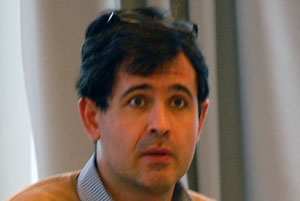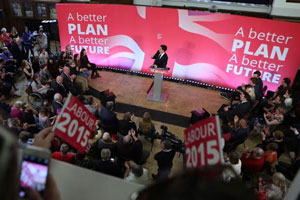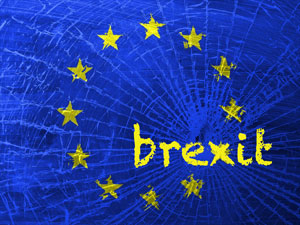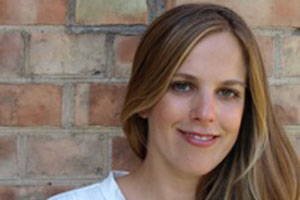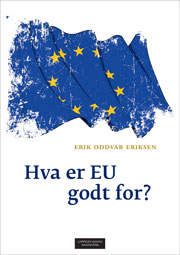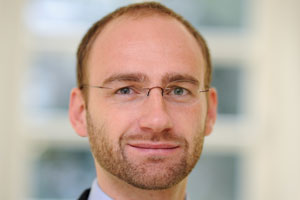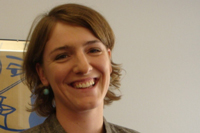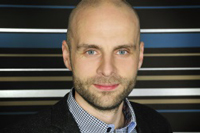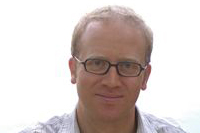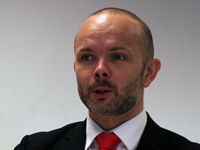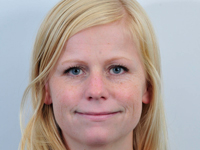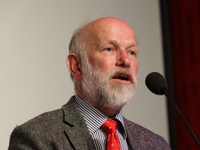Events - Page 10
Prof. Agustín José Menéndez from ARENA and the Unversity of León discussed the paper 'From the Social and Democratic Rechtsstaat to the authoritarian and consolidating state of governance: The triple crisis of law in Europe' at the Tuesday Seminar on 3 November.
ARENA and the Democracy Programme organise a research seminar on political parties and the place of partisanship in current democracies. 27 October is devoted to discussions on a forthcoming book which aims to rejuvenate the theoretical study of partisanship.
What are the British alternatives to full EU membership? What can Britain learn from current non-members? Welcome to a panel discussion on Britain's future in Europe.
At the ARENA Tuesday Seminar on 20 October 2015, Dr. Theresa Kuhn from the Unversity of Amsterdam gave the presentation 'Putting your money where your mouth is: How cosmopolitanism promotes willingness to redistribute transnationally'.
At the ARENA Tuesday Seminar on 13 October 2015, Dr. Mai'a K. Davis Cross from ARENA and Northeastern University in Boston will discuss the paper 'What type of power has the EU exercised in the Ukraine-Russia crisis? A framework of analysis'.
I anledning utgivelsen av Hva er EU godt for? av Erik Oddvar Eriksen og EU-kontrollen – jakten på det egentlige EU av Dag Yngland og Alf Ole Ask inviterer Cappelen Damm til lanseringsdebatt med statsråd Vidar Helgesen.
Prof. Michael Kaeding from the University of Duisburg-Essen presented the paper 'Representatives of whom? Party group coordinators in the European Parliament' at the ARENA Tuesday Seminar on 22 September 2015.
Martino Maggetti from the University of Lausanne presented his paper 'Governance networks and the politics of bureaucracy-building: The case of privacy regulators' at the ARENA Tuesday Seminar on 19 May 2015.
Virginie Van Ingelgom from Université catholique de Louvain presented the paper 'Assessing the depoliticization of European citizens in a more politicized Union: Integrating indifference' at the ARENA Tuesday Seminar on 12 May 2015.
Christian Rauh from the WZB Social Science Center Berlin presented his paper 'Responsive technocrats? Public politicisation of European integration and policy making in the European Commission' at the ARENA Tuesday Seminar on 5 May 2015.
In the extended Tuesday Seminar held on 28 April 2015, which was also ELJ's For and Against Series #2, Prof. Neil Walker from Edinburgh Law School and Julio Baquero Cruz from the European Commission discussed constitutional pluralism.
At the ARENA Tuesday Seminar on 17 March Uwe Puetter presented an excerpt from the book The New Intergovernmetalism: States and Supranational Actors in the Post-Maastricht Era authored with Christopher Bickerton and Dermot Hodson.
Prof. Hans-Jörg Trenz from ARENA and University of Copenhagen presented his paper 'Euroscepticism as EU polity contestation: from normative assessment to cognitive framing' at the ARENA Tuesday Seminar on 3 March 2015.
At the ARENA Tuesday seminar on 3 February 2015, Christina Eckes presented the paper 'Constitutionalizing the Common Foreign and Security Policy (CFSP) through judicial control: institutional prerogatives, consistency and fundamental rights'.
On 27 January 2014, Baldur Thórhallsson from the University of Iceland gave the presentation 'Are Icelanders not good Europeans? The reluctance of the Icelandic political elite to take full part in the European project'.
Johan Christensen from Stanford University presented the paper 'Recruitment and expertise in the European Commission' at the ARENA Tuesday Seminar on 25 November 2014.
Hélène Landemore presented the paper 'Democratic Deliberation and Legitimacy in Crowdsourced Legislative Processes: The Case of the Law on Off-Road Traffic in Finland' at the Tuesday Seminar on 18 November 2014.
This workshop analyses the development of a European administrative order, including agencification. Its focus is on how that relates to and reprograms national administrative orders.
This workshop discusses the constitutional and democratic implications of developments within the domain of foreign and security policy. What, if any, is the constitutional identity of the EU in the domain of foreign and security policy? What are the democratic implications of a putative constitutionalisation of this domain?
This workshop focuses on Europe's civil society and on the implications of the crisis. A key assumption is that the crisis politicizes through redistributive conflicts and a ‘new politics of identity’. An important question that is considered is how the Europe of rights and citizenship confronts a Europe of increasing inequalities.
This workshop takes stock of the present status of legal-democratic rule in the EU. What are the implications for democratic arrangements of increased executive dominance and technocracy, as well as more differentiation? Are there any prospects for representative-democratic institutions to ‘fight back’?
This debate will gather parliamentarians from Norway, Denmark and Sweden to discuss today’s constitutional context and challenges. Do we take the current situation seriously enough?
What is the state of democratic constitutionalism in Europe today? This open conference will discuss the current status of democracy in Europe, the implications of the euro crisis, as well as implications for Norway as an associate EU non-member state.
On Tuesday 14 October 2014, Nina M. Vestlund presented the paper 'The Quest for Order: Unravelling the relationship between the European Commission and European Union agencies'.
On 23 September 2014, Professor David Mayes from the University of Auckland and visiting researcher at ARENA presented the paper 'Banking Union in Europe. Will it work? What will it cost?'.
